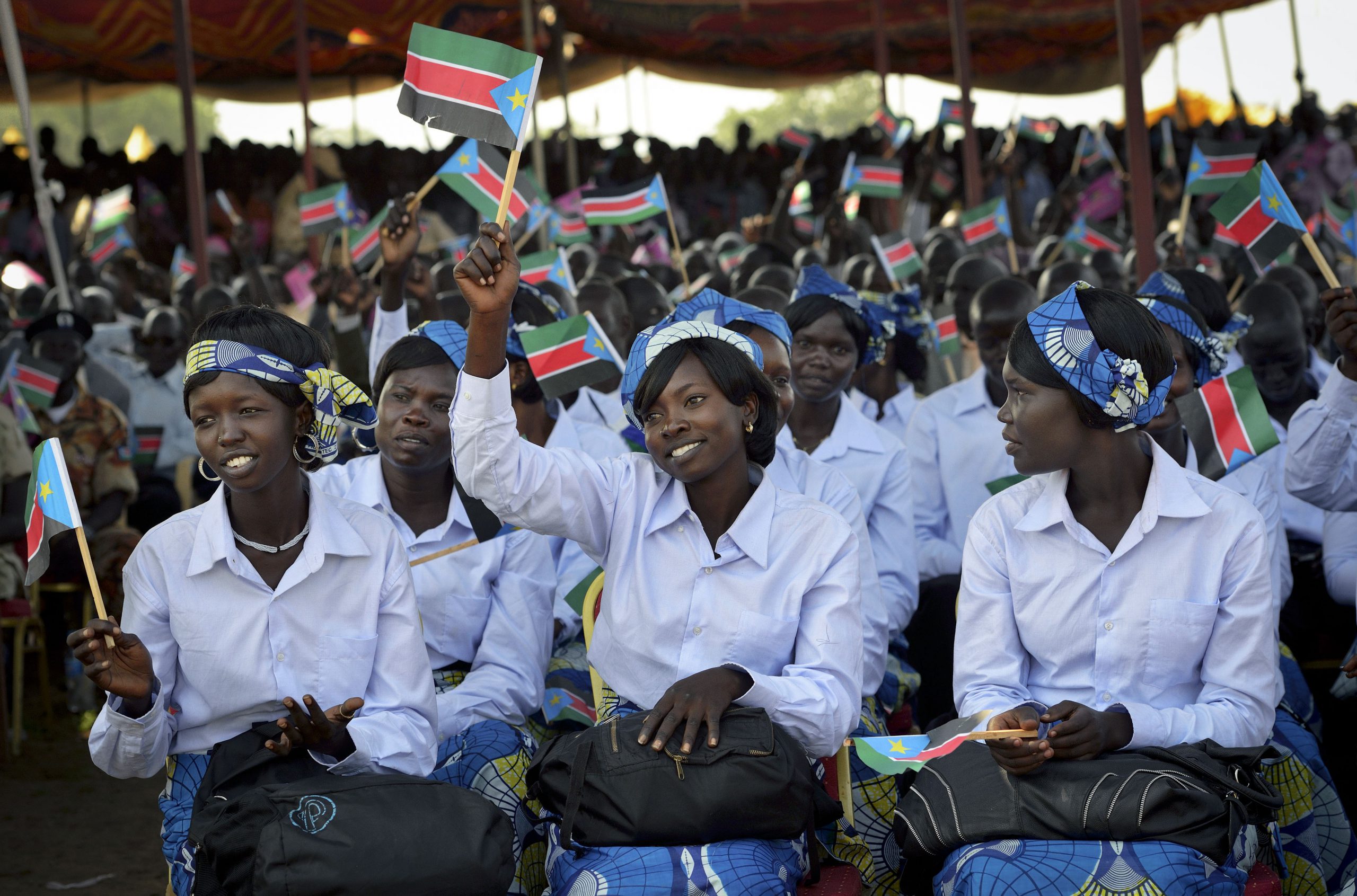
UN Commission in South Sudan Calls to End Gender-Based Violence
By Maya Garner
Well into its 45th session, the UN Human Rights Council is faced with the topic of sexual violence in conflict. Yasmin Sooka, Chair of the UN Commission on Human Rights in South Sudan, delivered a statement on the situation in the country wherein she called attention to the prevalence of rape perpetrated against South Sudanese women by armed forces. The country achieved its independence from Sudan in 2011 after a successful referendum. South Sudan has been torn by conflict since a civil war broke out in 2013 until the signing of a peace agreement the formation of a coalition government in February 2020. Since then, the country faces a “multidimensional crisis of persistent low-level violence and conflict, poor governance, entrenched impunity, weak institutions, and a lack of rule of law,” according to Human Rights Watch. On September 23rd at the UN HRC, Chairwoman Sooka stated that “women and girls remain the major casualties” in the conflict.
Sooka explained how major physical fighting has been replaced by a struggle over natural resources by political elites. As a consequence, “the soldiers in this conflict over resources are offered the chance to abduct and rape women in lieu of salaries.” This strongly suggests a state in which rape is not only a weapon of war, but a commodity of war. However, as reports of girls as young as eight years old being subjected to rape and sexual violence with their family members forced to watch, sexual violence does very much persist specifically as a tool for intimidation and control.
The Revitalized Peace Agreement decided on 35 percent quota for the appointment of women for positions with the Unity Government. However, as this quota has not been upheld, the situation of women is particularly dire in a country with high rates of gender-based violence, only exacerbated by the COVID-19 pandemic. Sooka pointed to lockdown restrictions, “while necessary,” as enabling violence against women. This included cases of “sexual slavery, the abduction of women, and the trafficking and sale of children including girls.” These crimes extend beyond sexual violence to cases of severe violation of bodily autonomy. In places of ongoing conflict in South Sudan, women and girls have been abducted for the purposes of forced marriage or sexual slavery. As such, young men are recruited for fighting on the premise of being enabled to abduct women or girls unhindered and thereby obtain wives or sexual slaves through coercion. The allure of freely obtaining women in these conflict-ridden places in Sudan is regarded as particularly valuable, subverting common costs associated with securing a bride. The state of unrest creates opportunities for severe oppression of women and girls, while larger structures of gender inequality and impunity enable these crimes. The UN Commission on Human Rights in South Sudan uncovered the organized activity of the exploitation of girls by government officials. Sooka placed this crime against the backdrop of “total impunity” for sexual and gender-based violence. The severity of these crimes points to the urgent need for female participation in government and an advancement of gender equality, Goal 5 of the UN’s 2030 Sustainable Development Agenda.
In April last year, the UN Security Council adopted Resolution 2467 on conflict-related sexual violence, which emphasizes a survivor-centered approach. This call came a decade after the adoption of Resolution 1820, which specifically designated sexual violence as a tool of war, and of Resolution 1888, which created the mandate of the Special Representative of Sexual Violence in Conflict. Notably, Resolution 2467 had been watered down from a previous, stronger proposal. Specifically, the draft resolution had included a call to establish a specific committee for monitoring and reporting on sexual violence in conflict. This was opposed by Russia and China and not included in the final version. Additionally, the U.S. later threatened to veto the draft resolution over language that mentioned securing access to reproductive healthcare facilities for survivors of sexual violence from conflict. The mention of reproductive healthcare was thereby omitted in the final version of the resolution. This omission renders the “survivor-centered approach” less effective and takes on a particularly eerie quality when Chairwoman Sooka raised with the HRC that the Commission had been informed of an increase in unwanted pregnancies “arising from the rape of young women allegedly by senior Government officials.“ This calls attention to the fact that access to reproductive healthcare is absolutely vital in the case of conflict-related sexual violence. The absence thereof results in the continued suffering and burdening of woman survivors long after the incidence of violence.
Chairwoman Sooka’s call to the HRC and its Member States emphasized accountability, calling for the realization of “the full range of transitional justice measures“ through the implementation of Chapter V of the Revitalized Peace Agreement and ensuring that South Sudan establishes a Hybrid Court and a Commission on Truth, Reconciliation, and Healing. The consequences of sexual violence have devastating effects on the individual women involved as well as the South Sudanese communities. The Council needs to work toward ending impunity through increased South Sudanese women participation in government, implementation of the peace agreement, international protection of the fundamental and wholesome rights of women and universal standards for addressing the consequences of sexual violence, including the securing of reproductive healthcare.


